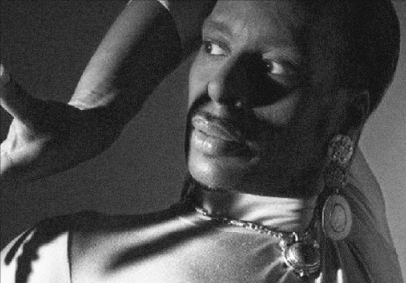Legendary vogueing artist came to mainstream attention in “Paris Is Burning”
Willi Ninja, a legendary figure in the drag ball community, died Saturday at New York Hospital Queens at the age of 45.
The dance artist who in the last several days has alternately been called the “godfather” and “grandfather of vogueing” suffered AIDS-related heart failure, according to The New York Times. During the past year, many who were concerned for Willi Ninja’s well-being circulated e-mails chronicling his increasingly severe bouts of illness.
Born William R. Leake in Flushing in April 1961, Willi Ninja began dancing at the age of seven and his 6-foot, 3 inch frame made him a captivating presence. He came to prominence as one of the stars of Jennie Livington’s award-winning 1990 documentary “Paris Is Burning,” that chronicled the drag ball scene that had originated in African-American communities, especially Harlem, in the 1920s.
Willi Ninja took his moniker from the martial arts-inspired movement at which he excelled. He was a pioneer of the club dance form and popularized it along with the balls—through vogueing competitions and “realness” impersonation parades. Through Livingston’s film, Willi Ninja introduced the mainstream to the culture of Houses—collectives of dancers and performers like House of Ninja, House of Xtravaganza, House of Labeija, House of Revlon, House of Infiniti, House of Aviance, and House of Milan—and “Mothers,” who nurture and look out for members of their Houses.
In reaching out to gay youth of color in its prevention work, Gay Men’s Health Crisis launched the House of Latex, which held an annual ball that became one of the organization’s best attended and most anticipated events.
Willi Ninja taught vogueing in Europe and Japan, walked the runway for Jean Paul Gaultier and Thierry Mugler, and danced in music videos. He also performed in works by choreographers Doug Elkins, David Neuman, and Karole Armitage, and is featured in dance historian Sally Sommer’s upcoming documentary “Check your body at the door.”
Keith Boykin, a leader in the African-American gay community, recognized Willi Ninja’s social stature and influence in a blog entry this week.
“If you don’t know Willi Ninja, you should know Willi Ninja,” Boykin wrote. “ He helped to influence black gay culture and left a lasting impression for generations to come.”
Emanuel Xavier, a poet and performer, responded to Willi Ninja’s death by re-circulating a poem called “Legendary,” from his “Bullets & Butterflies: queer spoken word poetry,” which he initially wrote to honor Pepper LaBeija, another star of “Paris Is Burning,” at the time of her death in 2003.
The poem reads, in part:
There are Gods amongst us in these ghettos
so black, so fierce,
so black, so beautiful,
so brown, so fierce,
so brown, so beautiful,
Watch them carefully and say your prayers as they enter the ballroom
angel wing feathers decorating skin
recrafted over silicone and martyred colors.
Ninja is survived by his mother, Esther Leake of Queens.
A funeral service has been scheduled for this Friday, September 8, from 7-9 p.m. at Roy L. Gilmore’s Funeral Home, 19102 Linden Boulevard. in Saint Albans, Queens. 718-529-3030.
To make donations in Willi Ninja’s honor that will be forwarded to his mother, visit myspace.com/willininja.
gaycitynews.com


































